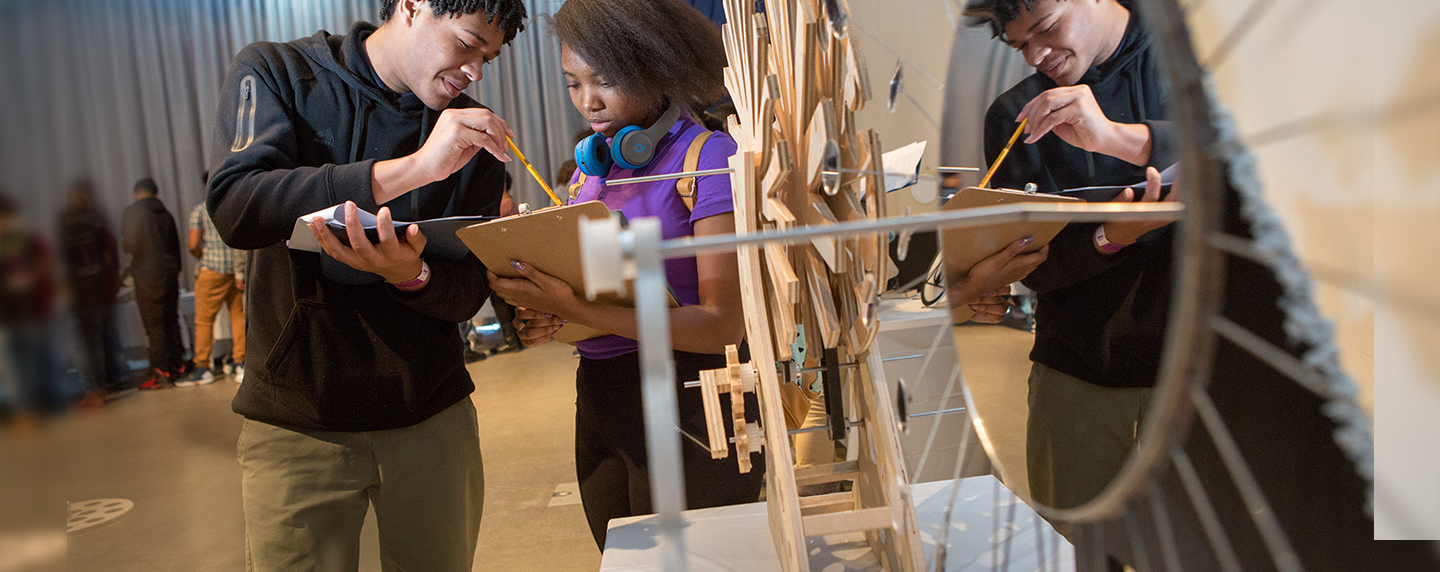
Why Invention Education
Invention Education prepares students for a future yet to be invented
Invention Education is a powerful educational approach that teaches the unique ways inventors find and solve problems. When students experience this approach, they become more engaged in their learning, more inclusive in their thinking, and more prepared for a future of rapid change and uncertainty.
Student + Educator Voices
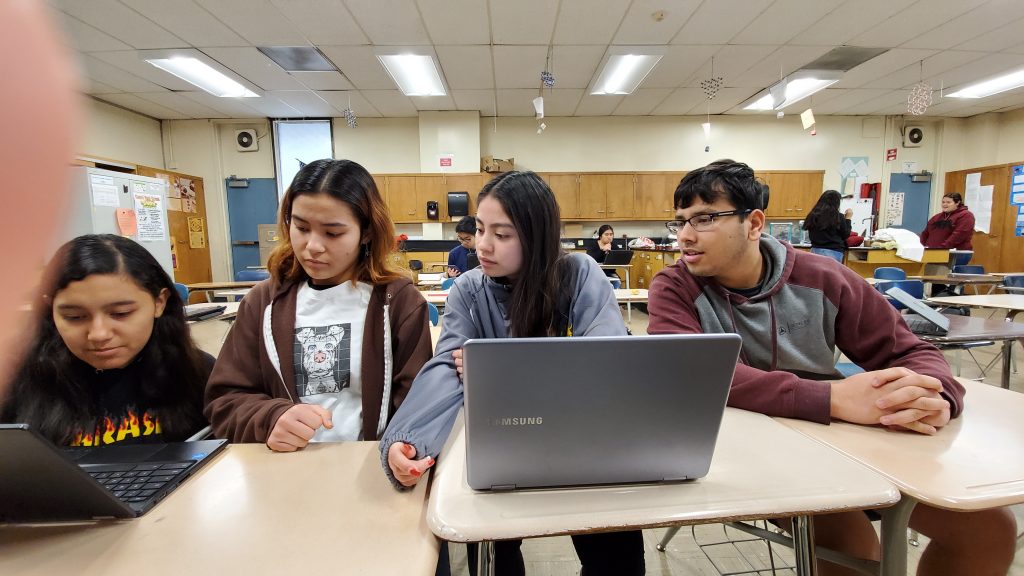
Students in Antonio Gamboa’s classroom.
Antonio Gamboa
Science Teacher at Garey High School, Pomona, CA
Antonio Gamboa has been a Science Teacher in the Pomona Unified School District for the last 18 years. He teaches biology, physics, and chemistry to 8th-12th graders of varying aptitudes and backgrounds (ELL, Special Education, valedictorians).
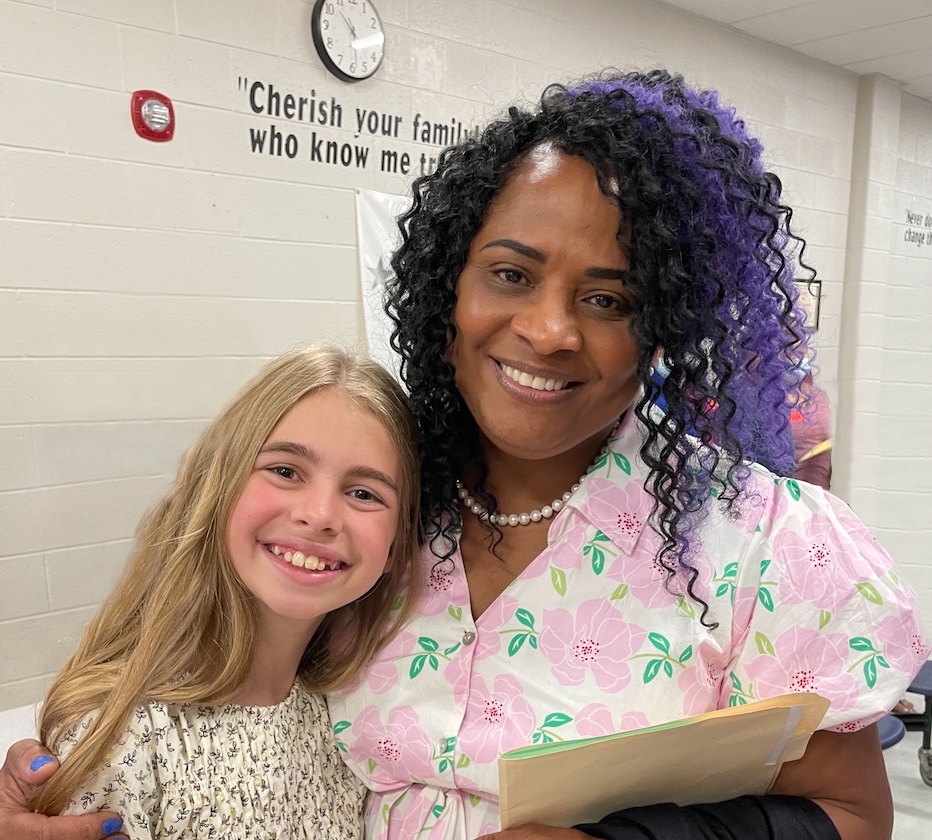
Audrey Cristelli and her advanced learning teacher, Lisa Rogers, at Audrey’s fifth grade graduation
Audrey Cristelli and Lisa Rogers
Student and Teacher at Smyrna Elementary School, Smyrna, GA
Audrey Cristelli is a student at Smyrna Elementary School near Atlanta, and a prize-winning student inventor. Her teacher, Lisa Rogers, has taught for 20 years in Cobb County, and runs Smyrna Elementary School’s advanced learning program, which is based on Invention Education.
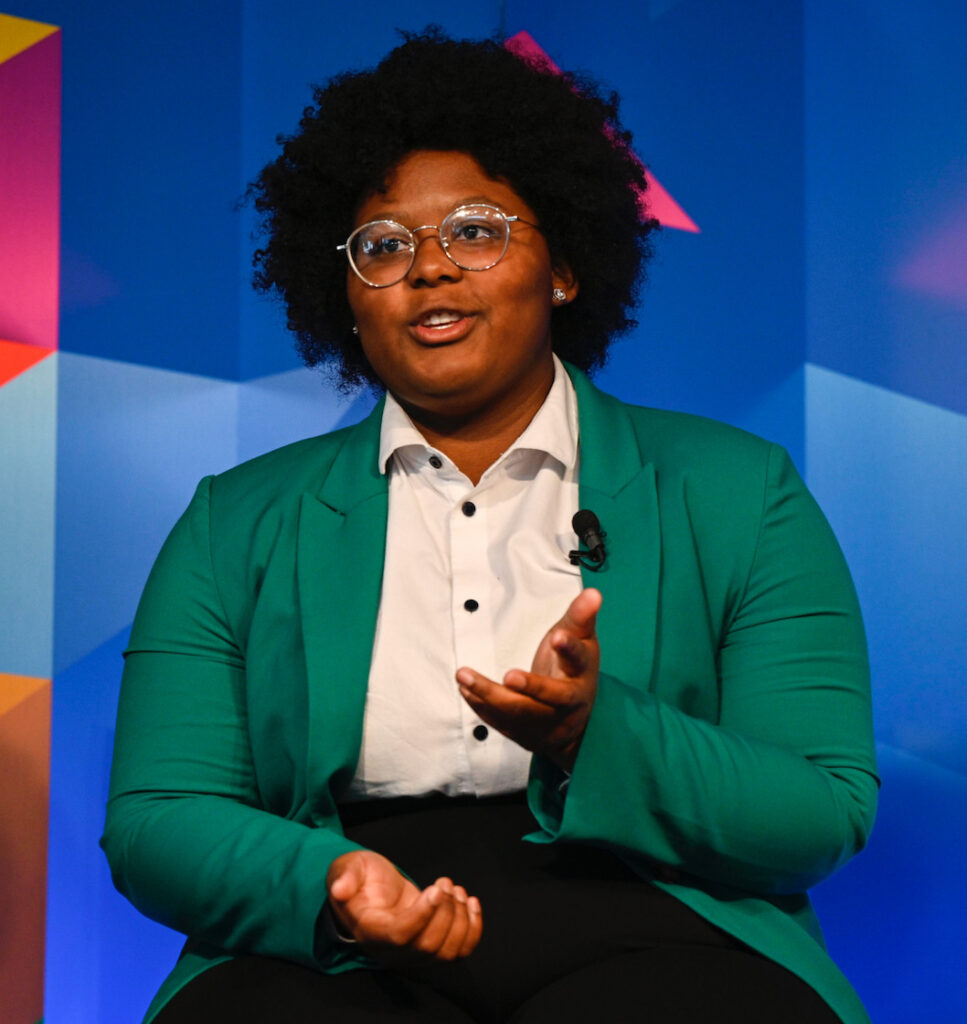
Dasia Taylor is in the process of patenting her first medical device at 19 years old — low-cost sutures that switch color if an infection has occurred, an affordable innovation on electronic “smart” sutures
Dasia Taylor
Sophomore, University of Iowa, Iowa City, Iowa
Dasia Taylor’s path to invention began in 11th grade at Iowa City West High School in Iowa, where she developed low-cost “smart” sutures to help detect infections. She is currently a student at the University of Iowa, as well as an entrepreneur and STEM advocate.
Opens Minds & Possibilities
Invention Education helps students identify and create new possibilities for themselves and their world. It builds confidence by creating a new sense of their identity, their abilities, and their future.
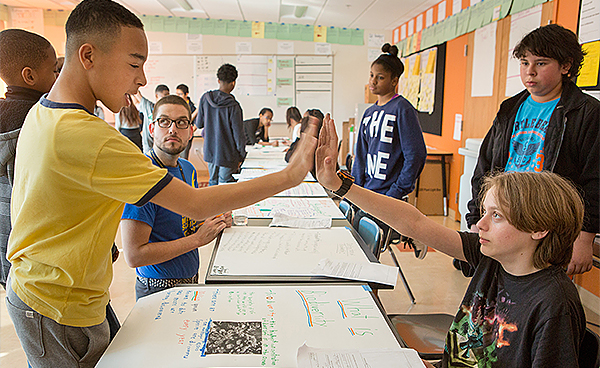
Invention Education teaches essential skills students need, whether they become inventors or not
- Provides a safe learning environment that encourages students to take risks, experience failure, and be comfortable in ambiguity.
- Increases students’ self-confidence and resilience to navigate ambiguity.
- Develops leadership skills.
The unique “Intellectual Thrill” of invention inspires students to engage more deeply in their learning and their world
- Transforms the way students see themselves – their abilities, potential roles in the world, and capacity to create something new and unique.
- Encourages creativity and practical application of STEM knowledge to develop new solutions that improve lives for individuals and society.
- Motivates students to self-identify as problem solvers and change-makers.
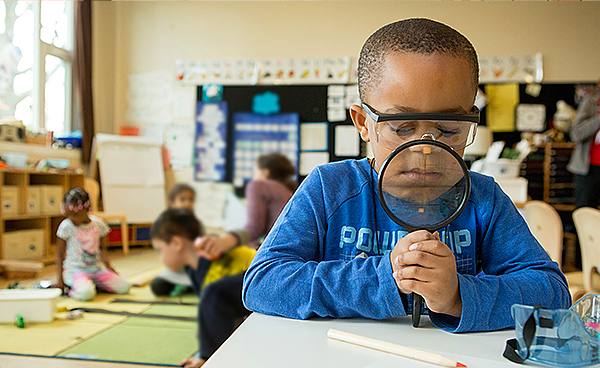
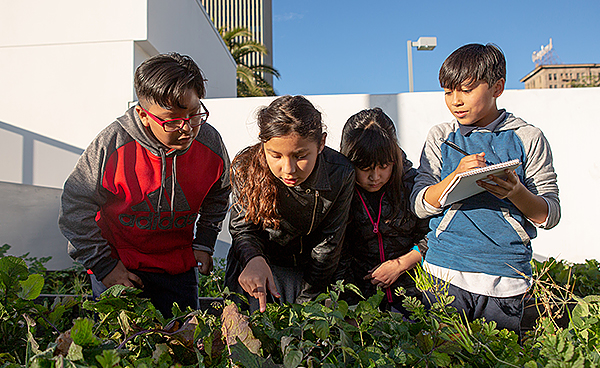
Invention Education emphasizes diverse student and community inputs
- Expands participation of students from under-represented groups in STEM learning.
- Fosters collaboration skills and students’ capacity for empathy by understanding problems from others’ perspectives.
- Increases emphasis and value placed on diverse student and community inputs that are typically marginalized.
Enhances Learning
Invention Education is a catalyst for deeper learning and engagement with STEM education and adjacent disciplines. Adding the unique real-world application of invention activates a deeper, more personal level of student interest, learning, and engagement.
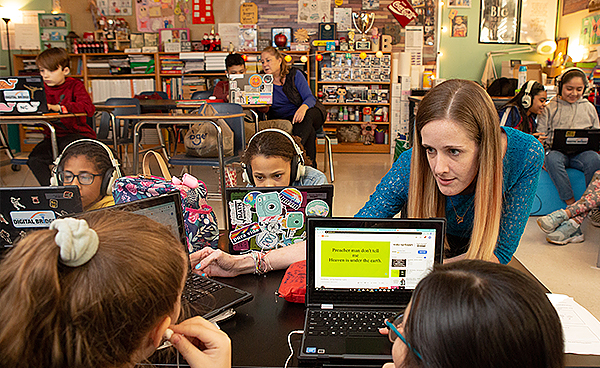
Invention Education enhances educators’ existing efforts in key disciplines, not replace them
- Designed to integrate into existing in classroom and out-of-school approaches and concepts.
- Draws upon students’ knowledge in existing disciplines and approaches (including STEM, computer science, entrepreneurship, project-based-learning and more) as well as their lived experiences to develop real solutions.
- Demonstrates real-world application of core disciplines, which activates deeper engagement and learning.
Invention Education emphasizes problem identification – gives students agency in the critical choice of which problems to solve and why
- Encourages students to identify and select the problems meaningful to them– a key differentiator from aligned disciplines that provide pre-determined problems to solve.
- Increases students’ engagement in their own learning and education.
- Invention Education emphasizes importance of inclusive and equitable problem selection.
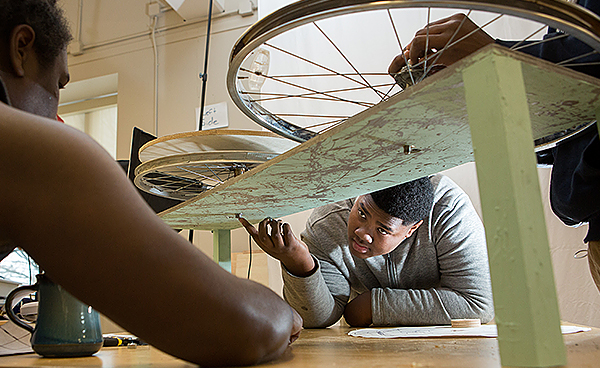
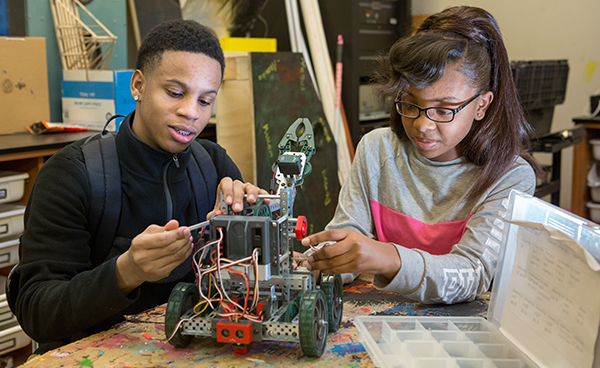
Prepares students for a role in the future innovation economy
- Fosters 21st century knowledge by strengthening student understanding of STEM subjects through real-world application.
- Builds “soft” skills such as empathy, inclusivity, curiosity.
- Encourages entrepreneurial thinking by helping students understand how to connect ideas to the marketplace.
Prepares Students for the Economy of the Future
Invention Education prepares students to thrive in a future yet to be determined, in industries yet to be imagined, and in jobs yet to be created.
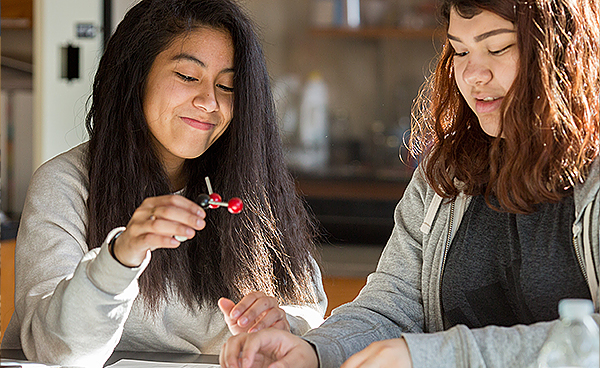
Invention Education prepares students to succeed in tomorrow’s workforce
- Develops the soft skills – like empathy, curiosity and resourcefulness – and hard skills – such as computer coding, data analysis, and design – that employers value in future leaders.
- Fosters an inventor’s mindset, building the skill set employers are demanding.
Invention Education prepares students to create the industries and jobs of tomorrow
- Develops the mindsets and skills that students can use to create new industries yet to be imagined.
- Inspires and prepares students to be future entrepreneurs and create good, well-paying jobs of the future.
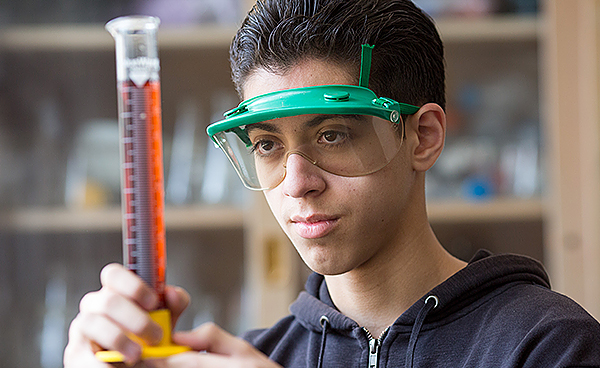
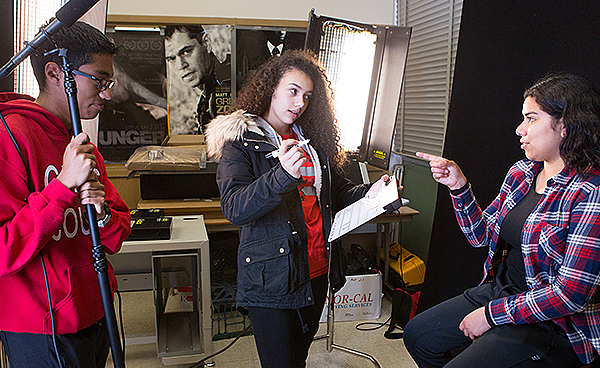
Prepares students to be the leaders of the future
- Reinforces the value of listening to diverse perspectives.
- Prioritizes collaboration and teamwork.
- Helps students learn to recognize and solve problems.
HOW Invention Education Works
A Student-Centered Approach
Invention Education is a student-centered approach that empowers students to solve the problems they care about. It offers educators the flexibility to integrate it into their current efforts in a variety of ways across a wide range of formal and informal educational settings.
